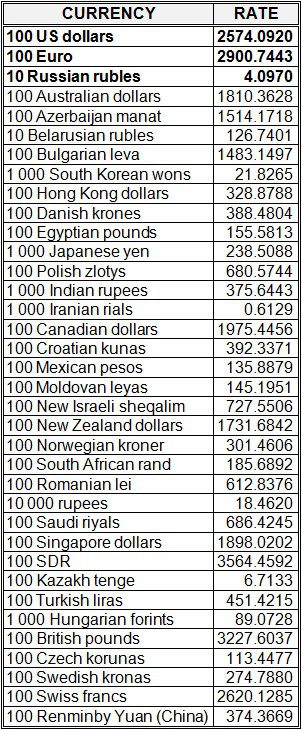
Ukrspyrt has resumed shipment of alcohol, terminated from July 1.
“The vodka crisis is canceled: the government has agreed on a temporary order for shipment of alcohol. State enterprise Ukrspyrt is working as normal and fulfilling contractual obligations,” the state-owned enterprise told Interfax-Ukraine.
The Cabinet of Ministers, in particular, agreed on a temporary order for shipment of alcohol until October 1, 2019.
“During this time, alcohol producers and consumers must bring accounting systems in accordance with the requirements of the Tax Code,” Ukrspyrt said.
As reported, the Cabinet of Ministers at a meeting on July 10 approved a “roadmap” of measures to resume the supply of alcohol suspended from July 1.
The document provides for the use of the metering devices already installed and registered in the relevant state register until the settlement of the issue of establishing and registering new electronic flow meters for ethyl alcohol by distilleries.
Ukraine from April 4 to July 13, 2019, increased its natural gas reserves in underground storage facilities (USF) by 66%, or 5.768 billion cubic meters (bcm), to 14.514 bcm, according to JSC Ukrtransgaz.
According to the calculations of the Interfax-Ukraine agency, this volume exceeds the stocks reported on July 13, 2018, by 22.2% and on July 13, 2017, by 18.9%.
The country’s gas reserves on July 1-13 increased by 969.38 million cubic meters (mcm), which was 74.6 mcm daily on the average, whereas it was 71.9 mcm per day in June, 62.9 mcm per day in May.
Ukraine’s gas reserves in the USFs on July 13, 2019, increased by 69.62 million cubic meters (mcm) when imports totaled 61.93 mcm and domestic production was 54.83 mcm.
National bank of ukraine’s official rates as of 16/07/19

Source: National Bank of Ukraine

Ukraine saw a record high export of 50.4 million tonnes of grain and leguminous crops in the 2018/2019 marketing year (MY, July 2018 through June 2019), which was 26.3% more than on the same date of the previous MY.
The Agrarian Policy and Food Ministry reported with reference to the State Fiscal Service, that maize exports totaled 29.82 million tonnes, shipments of wheat and wheat-and-rye blends abroad totaled 15.6 million tonnes, while 3.7 million tonnes of barley and 87,800 tonnes of rye were exported during the reporting period.
Some 301,280 tonnes of flour were also exported by the said date.
As reported, Ukraine in MY 2017/2018 exported 39.9 million tonnes of grain.
According to the Agrarian Policy and Food Ministry, Ukraine exported 1 million tonnes of grain and leguminous crops from July 1, when the new 2019/2020 marketing year started, to July 12, 2019.

JSC Ukrtransnafta, having checked the quality of U.S. crude oil (the Bakken formation), which was delivered by a tanker late last week, has started pumping it into the pipeline towards Ukraine’s Kremenchuk oil refinery.
“After the compliance of the crude oil was confirmed, Ukrtransnafta began pumping oil for its further transportation through the Odesa-Kremenchuk oil pipeline to the Kremenchuk refinery,” Ukrtransnafta said on Facebook on July 13.
As reported, the first batch of crude oil from the United States arrived in Odesa on July 6. It was delivered by the Wisdom Venture tanker.
CRUDE OIL, KREMENCHUK, OIL REFINERY, QUALITY, U.S., UKRTRANSNAFTA